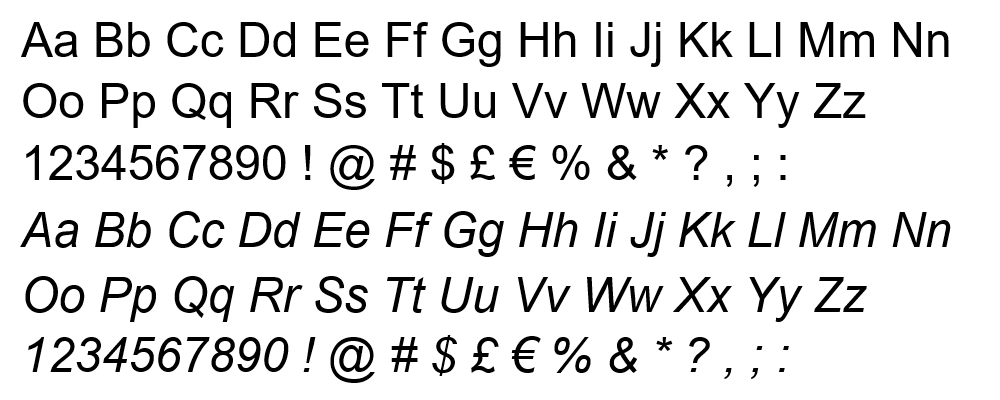
If you create an accented e using a single precomposed character in one Unicode font, it may not display in an incomplete Unicode font that lacks the precomposed glyph (depending on what substitution takes place).
ARIAL HEBREW FONT SOFTWARE
For example, an acute accent over an e can be stored as one precomposed character or it can be stored as two separate characters that your software displays as one character. Diacritical marks are also a potential cause of trouble. For example, many Unicode font sets lack support for Chinese. So it is possible that when you substitute one Unicode font set for the another Unicode font set, some characters will display as goobers or as blank spaces. They will display some but not all Unicode characters. Unicode font substitution never corrupts text, but there can still be problems displaying or printing characters. So unicode is a good way to share Greek and Hebrew on the web. Further, all modern web browsers can read and display Unicode characters. A complete Unicode font set should faithfully render the proper characters in any document you ever create in any language on any computer with any word processor, now or any time in the foreseeable future. When you move a file from one computer to another, and font substitution takes place, your Greek omega will never ever turn into an English w, or vice versa. Unicode guarantees that an English language w is stored as a w, and a Greek language ω is stored as an ω, no matter what computer or operating system or software you use. Unicode is a way of encoding and storing characters. How easy is it to change? Can you trust the substitution? This is the problem of document portability and the related issue of font substitution. What happens? Suppose after graduation you are revising part of your dissertation for a journal article, and the journal requires different fonts.

What happens when you print? Suppose you copy a block of Greek or Hebrew on a library computer, take the file home, and discover you do not have the specific fonts. But we don't have the fonts you used for Greek and Hebrew. Suppose you compose your paper at home, then bring the file to the computer lab to use our laser printers.

ARIAL HEBREW FONT PORTABLE
Unicode Fonts for Biblical Studies The problem of portable documents and font substitution


 0 kommentar(er)
0 kommentar(er)
